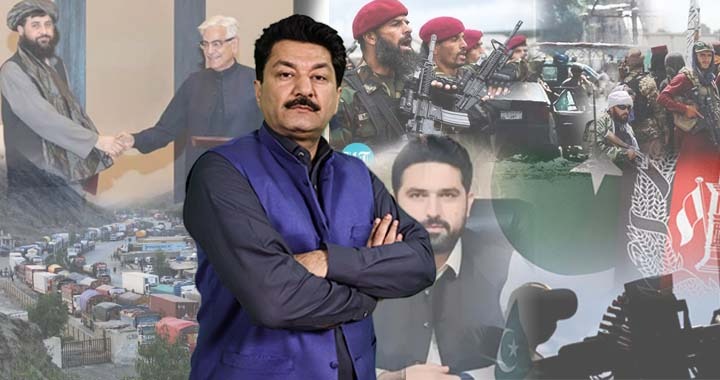The ceasefire between Pakistan and Afghanistan has arrived as a breath of cautious optimism, yet its future is far from certain. This brief agreement brokered in Doha is a positive first step; not a resolution, but a pause in a conflict that has strained what should have been a fraternal bond between two Muslim neighbours.
We must ask, how did we get here? Pakistan and Afghanistan, bound by faith and history, found themselves in direct confrontation. Cross-border attacks, retaliatory strikes, and diplomatic breakdowns replaced what should have been mutual trust and cooperation. The brotherhood we once spoke of, where has it gone?
Pakistan has, time and again since 2021, warned the Afghan Taliban that militant groups operating from their soil are launching attacks on our territory. Evidence has been handed over. Ambassadors have been summoned. Protest after protest has been lodged. And yet, no action was taken. There was once a direct line of communication between Islamabad and Kabul, but the Afghan side failed to listen.
It took a full-blown crisis, including a series of retaliatory air strikes and rising domestic pressure inside Afghanistan, to finally bring both countries back to the table. And even then, the objections raised in Doha over minor wording like the use of “border”, later replaced by Qatar, show how fragile the process remains.
The key point here is not semantics. The world sees that line as an international border. The real issue is that Afghanistan, under the Taliban, has failed to take responsibility for the militant presence on its soil. Even now, they neither admit nor act against these groups. But Pakistan has made its position clear: we are not targeting Afghan civilians, but militant hideouts and posts that directly threaten us.
This ceasefire, however short or simple, has one important clause, that Afghan soil will not be used against Pakistan. It is the first time Pakistan is named directly in such an agreement, and that matters. But its success depends entirely on implementation. Both sides will now have to channel complaints through Istanbul and Doha, where further sessions are planned — including one this October in Turkey.
Still, let us be honest: peace will not come through photo ops or one-page documents. Peace will only come if the Afghan Taliban take a clear and public stance against militancy. They must state, without ambiguity, that their soil will not be used to harm Pakistan.
Even more important is the voice of their spiritual leadership. If Sheikh Hibatullah Akhundzada truly holds the authority of Ameer-ul-Momineen, he must ask himself: are the believers only in Afghanistan? Are the people of Pakistan not Muslims too? One statement from him, a fatwa that says attacking Pakistan is against Islam, could break the chain of violence. If militants have pledged loyalty to him, then let him revoke their oaths.
We must also be vigilant against outside interference. Afghanistan’s increasing outreach to India and the suspicious timing of high-level visits, statements, and air strikes are no coincidence. Pakistan has long warned that Afghan soil is being used by others to destabilise us.
And yet, despite everything, Pakistan has not shut its doors. Millions of Afghan refugees still live in our country. We do not hold ordinary Afghans responsible for the actions of a few. But hospitality cannot come at the cost of national security. This is not enmity, this is self-preservation.
The Taliban must realise that groups like IS-KP and the banned TTP are not just Pakistan’s problem, they are an existential threat to Afghanistan itself. Hunger, ignorance, and unemployment are Afghanistan’s real enemies. The Taliban should focus on solving these, not sheltering those who export violence.
There is still hope, if the Taliban chooses responsibility over rhetoric. The world is watching. The region is ready. Investments are waiting. But none of it matters if peace does not prevail.
It starts with truth. It starts with action.
As for Pakistan — our doors have remained open. Millions of Afghan refugees live here. We do not blame the people of Afghanistan. But national security must remain paramount.
And while this diplomatic thaw unfolds, Pakistan must also put its own house in order.
In Khyber Pakhtunkhwa; a new Chief Minister, Sohail Afridi, has taken charge. It’s early days, and while he has announced meetings and some plans, the real test will be in delivery. There is no cabinet yet, and without it, government affairs remain stalled, at the cost of the people.
His request to meet his incarcerated party leader is valid, and should be granted so that governance can move forward. If Afridi delivers, he could prove better than his predecessor. If not, the reasons must be scrutinised. But he deserves a fair chance, and so do the people of KP.
This is a moment for new beginnings; not just in diplomacy, but in governance. Let’s not waste it.





